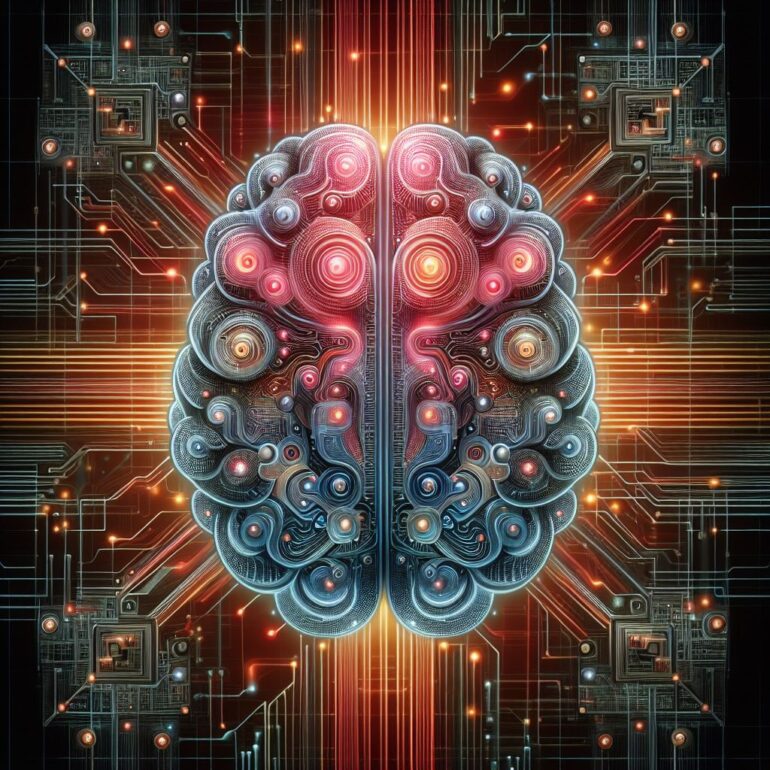- Japanese researchers develop diverse personality traits in AI using a large-scale language model (LLM) and game theory.
- The framework allows AI to switch between selfish and cooperative behaviors, mimicking human tendencies.
- Evolutionary processes refine AI agents’ strategies based on natural language descriptions of personality traits.
- Experimentation reveals the emergence of both selfish and cooperative traits within AI populations.
- Findings underscore the transformative potential of LLMs in AI research and provide insights for future AI societies.
Main AI News:
In Japan, researchers have successfully cultivated a spectrum of personality traits within conversational AI using a sophisticated large-scale language model (LLM). By leveraging the framework of the prisoner’s dilemma from game theory, Professor Takaya Arita and Associate Professor Reiji Suzuki, leading a team at Nagoya University’s Graduate School of Informatics, have devised a methodology for the evolution of AI agents. These agents can seamlessly oscillate between self-serving and cooperative behaviors, refining their strategies through evolutionary mechanisms. Their groundbreaking discoveries have been disseminated in Scientific Reports.
The foundation of LLM-driven Dialogue AI, akin to technologies like ChatGPT, has ushered in a new era of computer-human interaction, mimicking natural conversational exchanges. Nagoya University’s objective was to scrutinize the potential of LLMs in fostering a broader spectrum of personality traits during social engagements.
The AI personas were cultivated to optimize virtual gains by participating in the prisoner’s dilemma game, a cornerstone of game theory. This dilemma involves each player deciding whether to cooperate or defect against their counterpart. Cooperation yields four virtual dollars for both AI systems. However, if one defects while the other cooperates, the defector gains five dollars while the cooperator gains nothing. Mutual defection results in each receiving one dollar.
Arita elaborated on their study, stating, “Our objective was to explore the dynamics of interactions and evolution among AI agents endowed with diverse personality traits. Leveraging the extraordinary capabilities of LLMs, we formulated a framework where AI agents evolve based on natural language descriptions of personality traits encoded in their ‘genes.‘”
“Through this framework,” Arita continued, “we witnessed the emergence of a myriad of personality traits, showcasing the adaptability of AI agents in toggling between self-serving and cooperative behaviors, akin to human behavior.”
Traditionally, evolutionary game theory studies attribute an agent’s behavior directly to its “genes.” However, by utilizing LLMs, Arita and Suzuki introduced a novel approach, wherein genes encapsulated nuanced descriptions like “prioritizing self-interest while being open to collaborative efforts, resulting in a blend of cooperation and defection.” This description was then translated into behavioral strategies by prompting the LLM to choose between cooperation and defection based on the specified personality trait.
Their research employed an evolutionary framework, where AI agents’ capabilities underwent refinement through natural selection and mutation across successive generations, yielding a diverse array of personality traits.
While some agents showcased self-serving inclinations, prioritizing personal interests over communal welfare, others demonstrated sophisticated strategies balancing personal gains with mutual and collective benefits.
Suzuki reflected on their experiments, stating, “Our findings offer intriguing insights into the evolutionary dynamics of personality traits among AI agents. We observed the emergence of both cooperative and self-serving traits within AI populations, mirroring human societal dynamics.”
“However,” Suzuki cautioned, “we also uncovered the inherent instability within AI societies, with overly cooperative groups being supplanted by more ‘egocentric’ agents.“
“This breakthrough underscores the transformative capabilities of LLMs in AI research, illustrating that the evolution of personality traits, grounded in subtle linguistic expressions, can be effectively captured by computational models employing LLMs,” remarked Suzuki.
“Our discoveries not only shed light on the desirable characteristics for AI agents to contribute meaningfully to human society but also offer crucial design principles for future AI societies and hybrid societies encompassing both AI and human populations, anticipated in the near future.”
Conclusion:
The research underscores the transformative potential of leveraging game theory and LLMs in evolving AI personalities. Understanding the dynamics of cooperation and selfishness within AI populations provides invaluable insights for designing AI technologies that effectively contribute to human society. As markets continue to integrate AI-driven solutions, prioritizing the cultivation of balanced personality traits in AI agents will be crucial for fostering sustainable and harmonious human-AI interactions, paving the way for a future where AI technologies seamlessly coexist with human populations.

